SLVSFS3B September 2020 – July 2021 TPS62868 , TPS62869
PRODUCTION DATA
- 1 Features
- 2 Applications
- 3 Description
- 4 Revision History
- 5 Device Options
- 6 Pin Configuration and Functions
- 7 Specifications
- 8 Detailed Description
- 9 Application and Implementation
- 10Power Supply Recommendations
- 11Layout
- 12Device and Documentation Support
- 13Mechanical, Packaging, and Orderable Information
Package Options
Mechanical Data (Package|Pins)
- RQY|9
Thermal pad, mechanical data (Package|Pins)
Orderable Information
9.2.3 Application Curves
VIN = 5.0 V, VOUT = 0.9 V,
TA = 25°C, BOM = Table 9-2, unless otherwise noted.
VIN = 5.0 V, VOUT = 0.9 V,
TA = 25°C, BOM = Table 9-2, unless otherwise noted.
Figure 9-2 Efficiency. VIN = 5.0 V, VOUT = 0.9 V,
TA = 25°C, BOM = Table 9-2, unless otherwise noted.

| VOUT = 0.6 V |
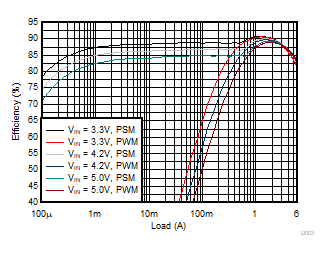
| VOUT = 0.9 V |

| VOUT = 1.2 V |

| VIN = 5.0 V |
| VOUT = 0.9 V | θJA = 60.3°C/W |

| IOUT = 6.0 A |

| IOUT = 0.1 A |

| No Load |
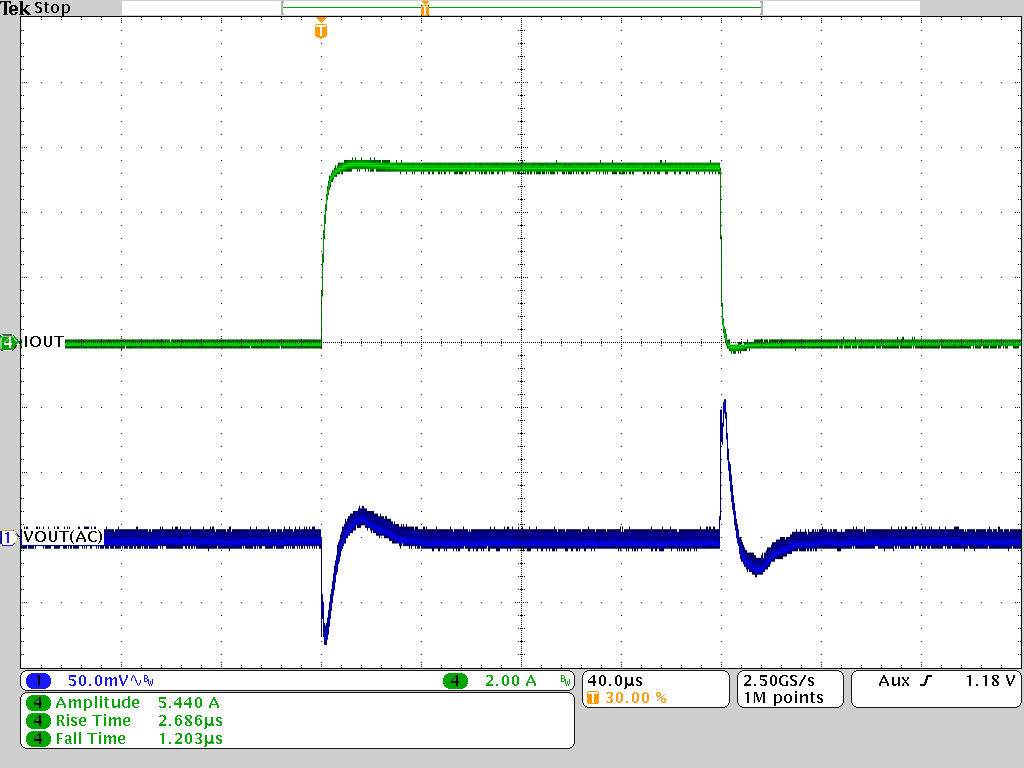
| IOUT = 0.06 A to 5.4 A | Forced PWM |

| VOUT = 0.6 V |

| VOUT = 0.9 V |

| VOUT = 1.2 V |
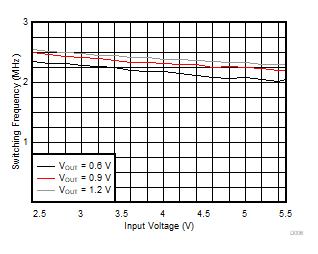
| IOUT = 1.0 A |
| VOUT = 1.675 V | θJA = 60.3°C/W |
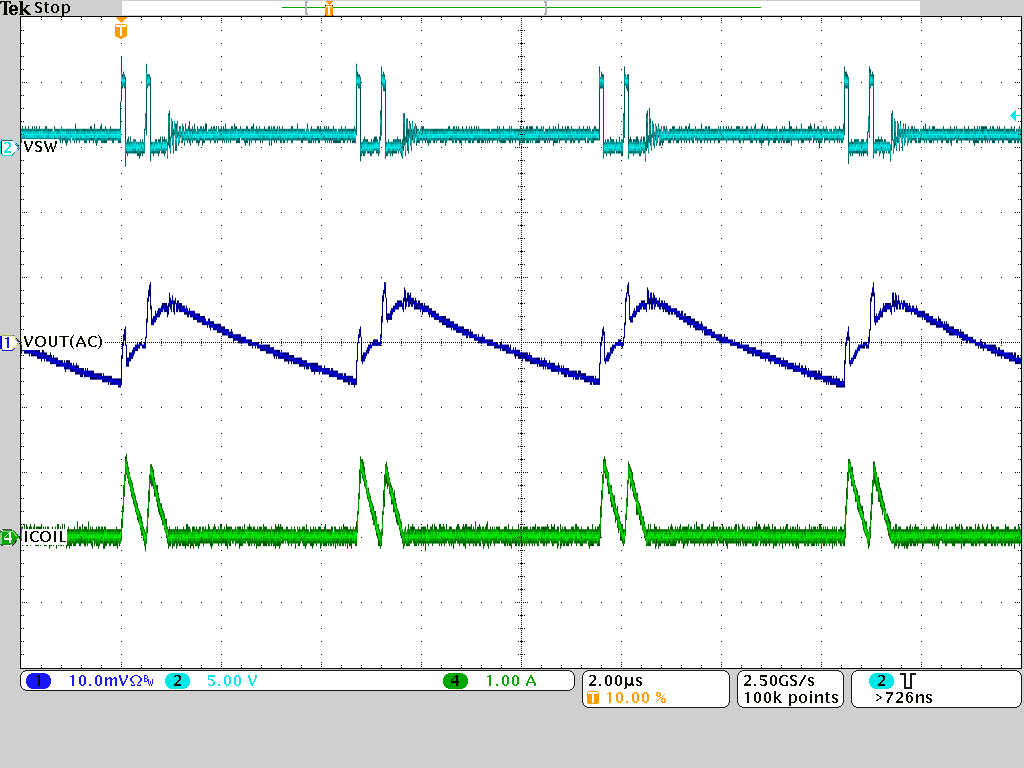
| IOUT = 0.1 A |
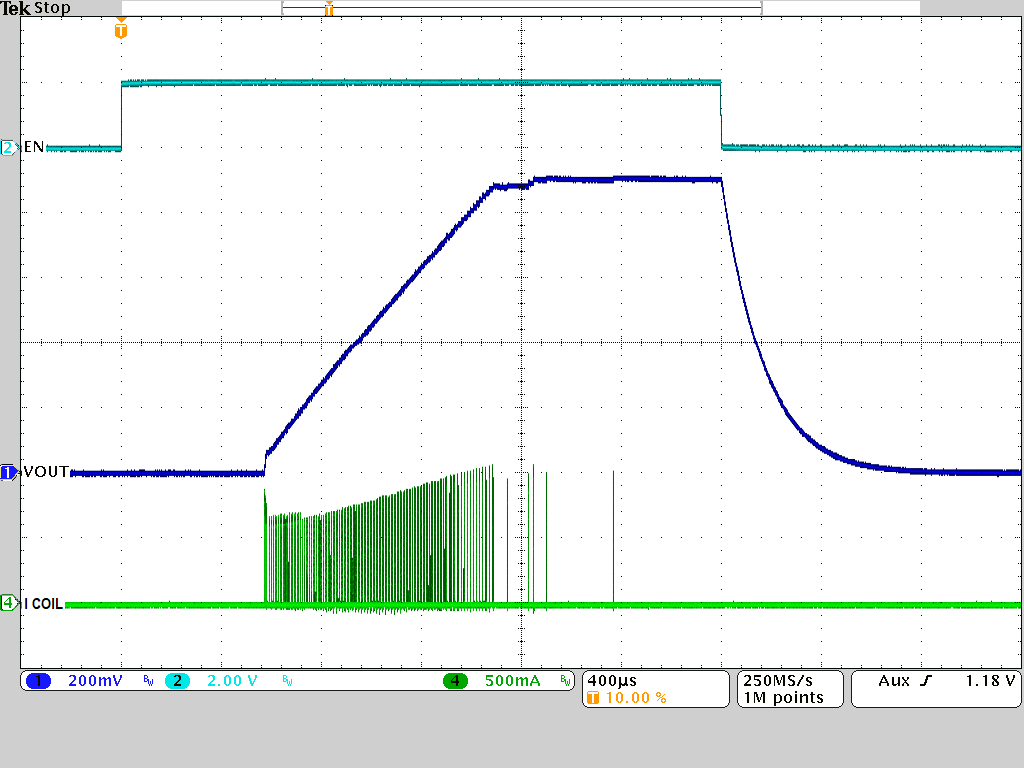
| No Load |

| IOUT = 0.06 A to 5.4 A | PSM |
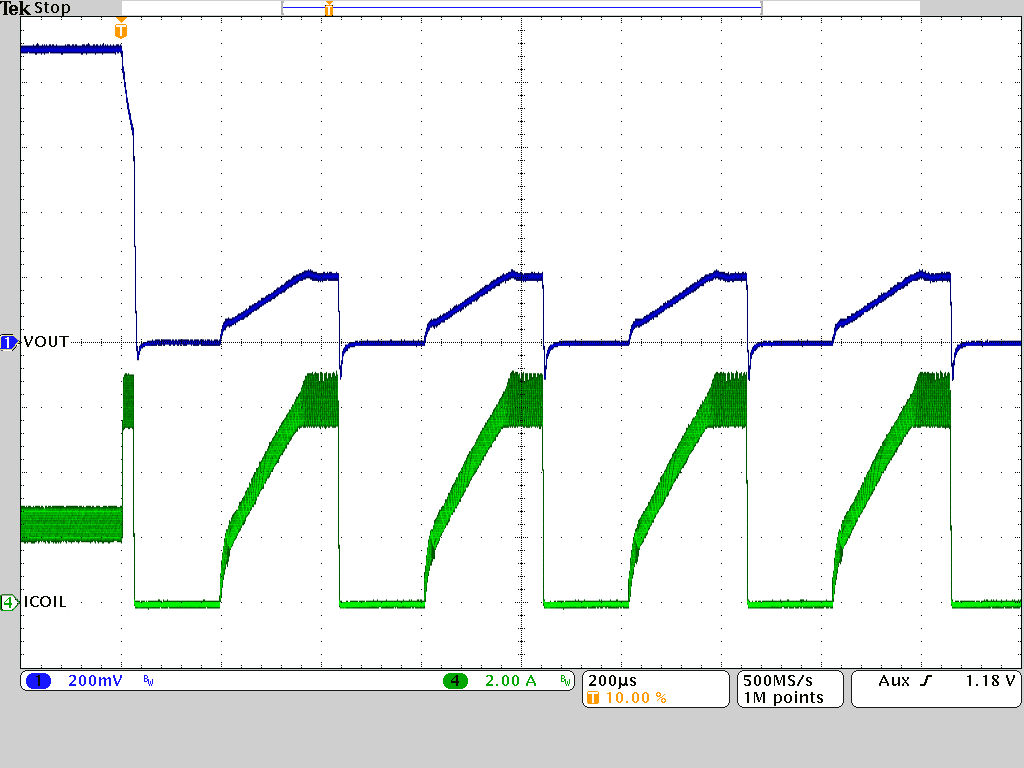
| IOUT = 2.5 A |